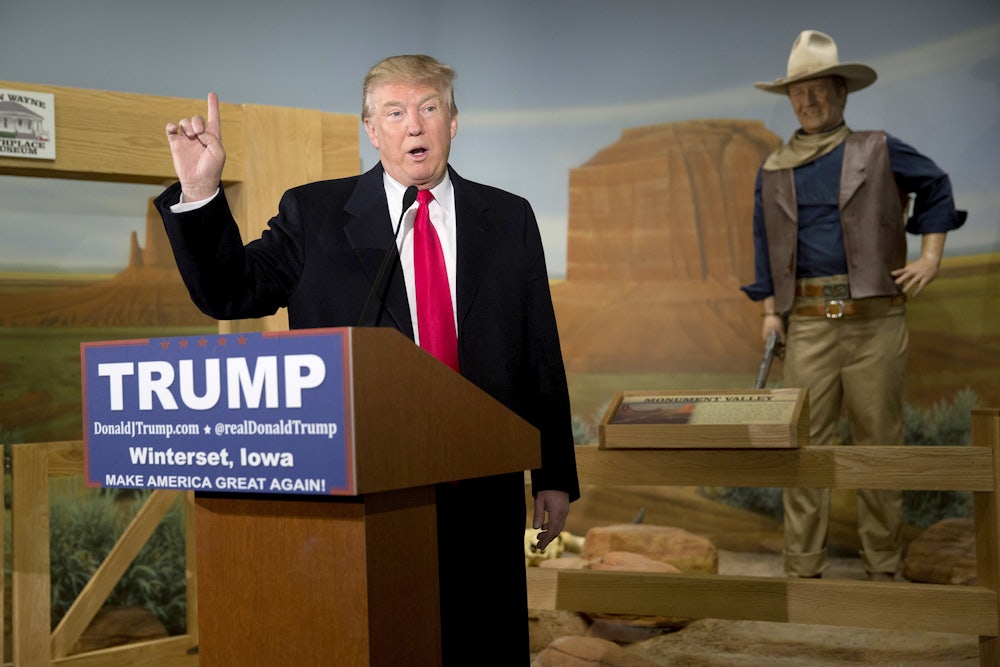And it’s becoming less so now, according to a new Reuters poll. “Forty-seven percent of rural Americans said in September they approved of the president’s handling of immigration, down from 56 percent during his first month in office,” the news service reported on Monday morning. It’s early evidence that in 2020, Trump may not be able to count on the very population that helped make him president:
Rural Americans were increasingly unhappy with Trump’s handling of healthcare in March and April after he lobbied for a Republican plan to overhaul Obamacare and cut coverage for millions of Americans.
In May and June, they were more critical of Trump’s ability to carry out U.S. foreign policy, and they gave him lower marks for “the way he treats people like me.”
In August, they were increasingly unhappy with “the effort he’s making to unify the country” after he blamed “both sides” for the violence in Charlottesville, Virginia, in which a suspected white nationalist drove his car into a crowd of anti-racist demonstrators.
No great political awakening rolled over American hills. But this is pre-ordained dissatisfaction. Trump was never going to fulfill his bombastic promises, and bombastic promises are all he has. This doesn’t mean he isn’t inflicting real, lasting damage on American democratic processes, just that his nativist utopia was always dead on arrival. This puts Republicans like Virginia gubernatorial candidate Ed Gillespie in an increasingly difficult position. Pandering to Trumpism previously seemed like a necessary way to win rural votes, and now it’s not an entirely sure bet. Dissatisfied Trump voters may not immediately turn Democrat; they just may be more likely to stay home, and candidates like Gillespie can’t afford enthusiasm gaps.
This is a chance for the Democratic Party to step into the breach—and contra popular belief, they don’t necessarily need to pander to the right to pick up Republican voters. Democrats shouldn’t cede red state and rural communities to the GOP, especially not when Republican policies are so specifically damaging to these voters’ well-being. Health care is becoming a true wedge issue, and some Democrats in red states—like Texas’ Beto O’Rourke, now challenging Senator Ted Cruz—have adopted Medicare for All in response to this shift. It’s too soon to tell if this gambit wins votes, but it’s an increasingly practical move.
